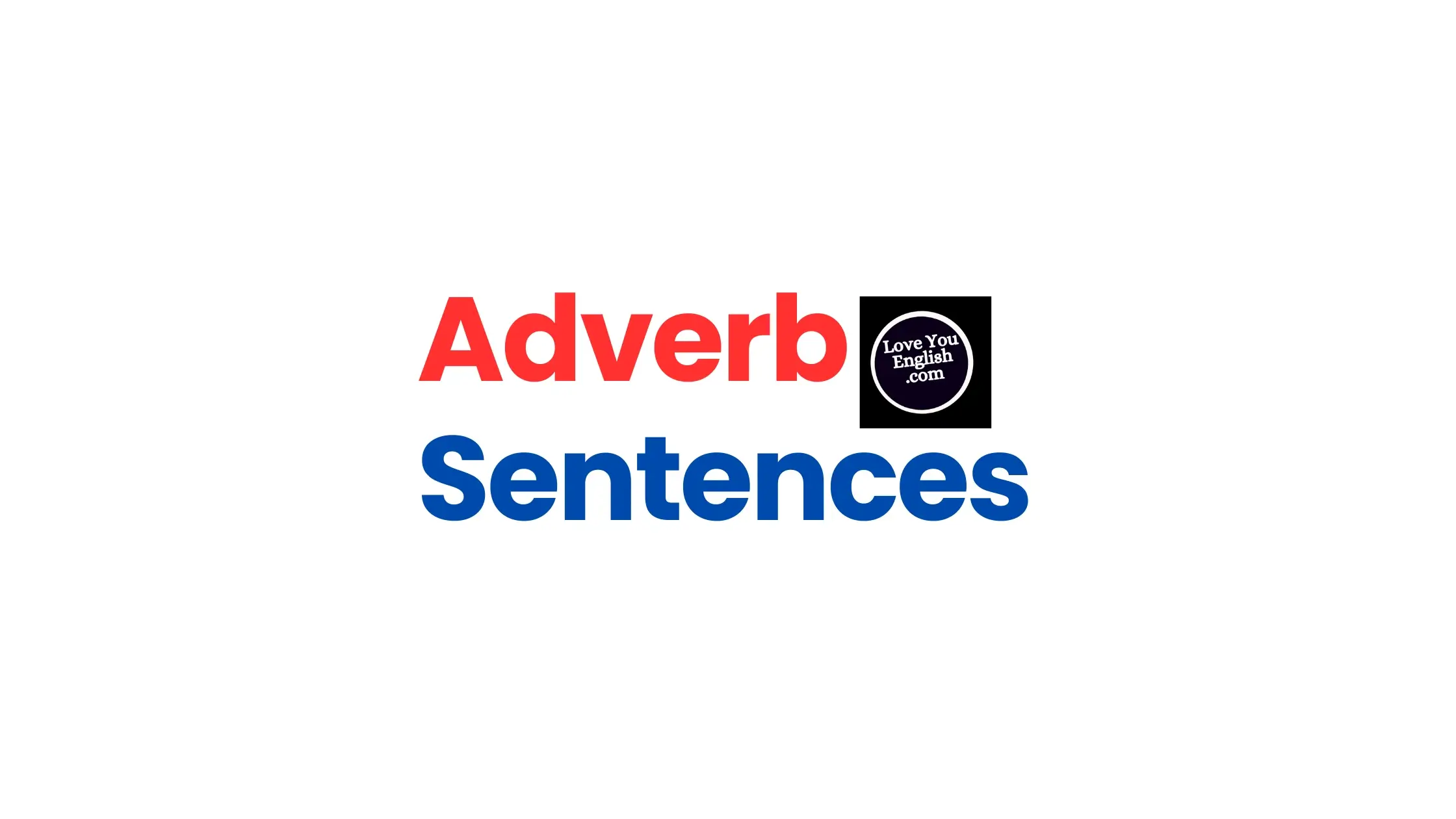Examples of Adverbs in Sentences
Sharing is caring!
Have you ever noticed how some words add color and life to our sentences? These powerful little words are called adverbs.
They’re the secret ingredients that transform plain statements into vivid descriptions.
Adverbs tell us how, when, where, and to what extent something happens, making our language more precise and interesting.
In this blog post, we’ll explore dozens of examples showing adverbs in action.
Whether you’re learning English or looking to improve your writing skills, understanding adverbs will help you communicate more effectively.
What Are Adverbs?
Adverbs are words that modify verbs, adjectives, or other adverbs. They answer questions like:
- How? (manner)
- When? (time)
- Where? (place)
- To what extent? (degree)
Let’s dive into examples for each type.
Adverbs of Manner (How)
Adverbs of manner tell us how something happens. They often end in “-ly” but not always.
- Quickly: She quickly finished her homework before dinner.
- Carefully: The scientist carefully measured each chemical.
- Loudly: The children laughed loudly at the clown’s jokes.
- Well: Despite his injury, he played well in yesterday’s game.
- Badly: The team performed badly after losing their star player.
- Slowly: The turtle moved slowly across the garden.
- Eagerly: Students eagerly waited for the bell to ring.
- Gracefully: The ballerina danced gracefully across the stage.
- Hard: She works hard to support her family.
- Calmly: The pilot calmly announced that we would be making an emergency landing.
Adverbs of Time (When)
Adverbs of time tell us when an action takes place.
- Yesterday: I saw that movie yesterday.
- Today: Today, we’ll learn about photosynthesis.
- Tomorrow: The package will arrive tomorrow.
- Now: Please do your homework now.
- Soon: We’ll be leaving soon.
- Already: I’ve already eaten lunch.
- Recently: She recently moved to a new apartment.
- Later: We can discuss this later.
- Early: The birds begin singing early in the morning.
- Never: I have never visited Australia.
Adverbs of Place (Where)
Adverbs of place indicate where an action happens.
- Here: Please put the box here.
- There: The cat is hiding there under the couch.
- Everywhere: We looked everywhere for the missing keys.
- Nowhere: The missing document was nowhere to be found.
- Inside: Let’s stay inside during the storm.
- Outside: The children are playing outside.
- Upstairs: My bedroom is upstairs.
- Downstairs: We heard a noise downstairs.
- Abroad: My sister is studying abroad this semester.
- Away: The ball rolled away down the hill.
Adverbs of Degree (How Much)
Adverbs of degree show the intensity or extent of an action, adjective, or another adverb.
- Very: The test was very difficult.
- Too: This soup is too hot to eat right now.
- Extremely: The movie was extremely interesting.
- Quite: I’m quite satisfied with the results.
- Almost: We almost won the championship.
- Hardly: I hardly recognized him with his new haircut.
- Barely: She barely passed the exam.
- Completely: I completely forgot about our meeting.
- Somewhat: I’m somewhat concerned about this situation.
- Enough: Have you practiced enough for the recital?
Frequency Adverbs (How Often)
These adverbs tell us how often something happens.
- Always: She always brings lunch from home.
- Usually: We usually go to the beach in summer.
- Often: They often visit their grandparents on weekends.
- Sometimes: I sometimes take the long route home.
- Occasionally: We occasionally eat at that restaurant.
- Rarely: The endangered bird is rarely seen in this area.
- Seldom: He seldom speaks about his childhood.
- Never: I never eat shellfish because I’m allergic.
- Frequently: She frequently checks her phone during class.
- Daily: I exercise daily to stay healthy.
Connecting Adverbs
Some adverbs help connect ideas in sentences.
- However: I wanted to go to the beach; however, it started raining.
- Therefore: She was late for work; therefore, she missed the important meeting.
- Consequently: He didn’t study; consequently, he failed the test.
- Furthermore: The hotel is expensive. Furthermore, it’s far from the attractions.
- Meanwhile: I’ll prepare dinner. Meanwhile, you can set the table.
Interrogative Adverbs
These adverbs are used to ask questions.
- When: When will you arrive?
- Where: Where did you put my keys?
- Why: Why are you crying?
- How: How did you solve this problem?
Adverbs in Everyday Conversations
Adverbs make our everyday conversations more expressive and precise. Let’s look at some examples:
- “I completely forgot we had plans today. Can we possibly reschedule?”
- “The concert was incredibly loud, but we thoroughly enjoyed it.”
- “She politely declined the invitation because she was extremely busy.”
- “He carefully examined the contract and immediately noticed the error.”
- “We frequently eat at that restaurant because they consistently serve excellent food.”
Tips for Using Adverbs Effectively
While adverbs are useful, they should be used thoughtfully. Here are some tips:
- Avoid adverb overload: Using too many adverbs can make your writing seem cluttered.
- Choose strong verbs over adverb + weak verb combinations:
- With adverb: “He walked slowly down the street.”
- Stronger: “He shuffled down the street.”
- Place adverbs correctly: The position of an adverb can change the meaning of a sentence.
- “Only she visited the museum yesterday.” (No one else visited)
- “She only visited the museum yesterday.” (She did nothing else there)
- “She visited only the museum yesterday.” (No other places)
- “She visited the museum only yesterday.” (Not on other days)
Conclusion
Adverbs add depth and clarity to our language, helping us express ourselves more precisely. From describing how actions happen to indicating when, where, and to what degree, these versatile words enrich our communication.
Next time you’re writing or speaking, pay attention to how you use adverbs. Used wisely, they can transform simple sentences into vivid, precise expressions of your thoughts. Remember, though, that like any seasoning, they’re best used with a careful hand—choose quality over quantity for the most impact.
Practice spotting adverbs in your reading, and experiment with them in your writing. Soon, you’ll be using these powerful modifiers to bring your language to life!
Read more:
- How to Think in English (Stop Translating in Your Head)
- Tongue Twisters to Improve Pronunciation
- How to Use Subtitles Effectively for Learning English
- English Learning Games and Activities
- How to Use Language Exchange Apps to Practice English
- Tips for Understanding Different English Accents
- Tips for Learning English as an Adult
Sharing is caring!








